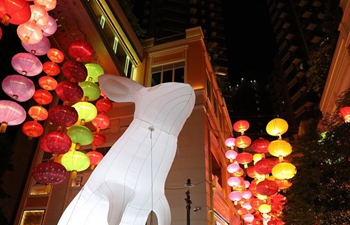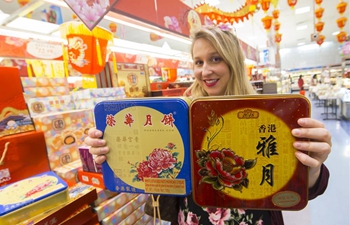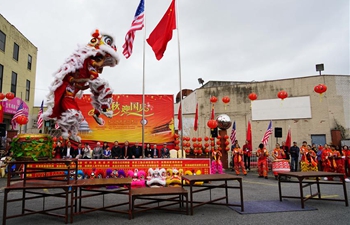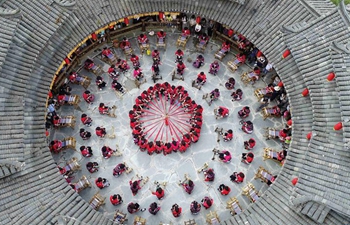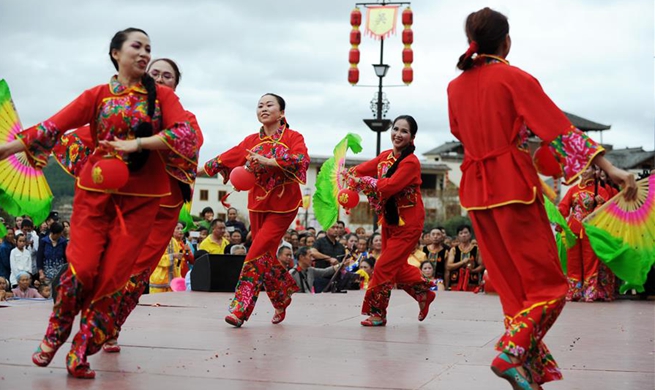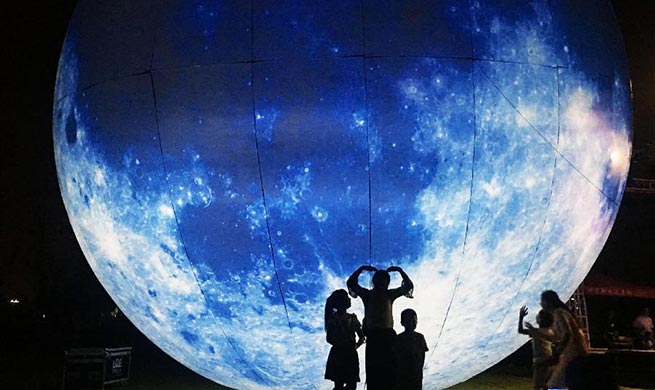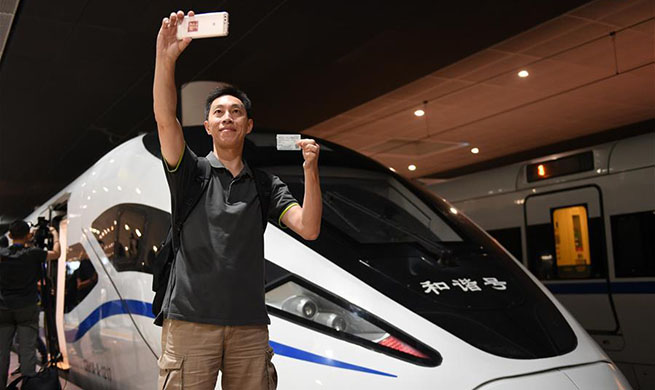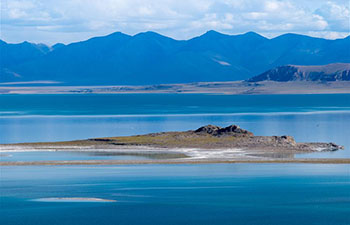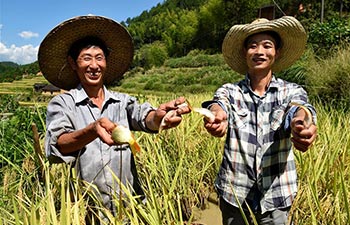SAN FRANCISCO, Sept. 23 (Xinhua) -- A Chinese artist is setting a permanent footprint in the United States in touting his philosophy of hands-on ecology through art as a museum exclusively dedicated to his artistic works opened Sunday in Silicon Valley in western California.
The Silicon Valley museum named after his own name features more than 150 items of artistic exhibits, including 40 paintings, which reflected more than 40 years of renowned Chinese artist Zhu Renmin's devotion to ecological restoration projects in China.
Zhu, ink painting artist and director of joint research center for ecological restoration at Zhejiang University in eastern China, is the first owner of a private island in China when the Chinese government released a list of the country's uninhabited islands open to companies or individuals for development in April 1996.
Zhu bought a small island near the city of Zhoushan in Zhejiang Province that year, and spent about 15 years turning the uninhabited island, now named the "Lotus Island," into a place of interest appealing to many visitors who want to explore an ecologically friendly world on the island.
It took him a decade and a half to complete the ecological restoration project on the island in what he called "the embodiment of my conception of spiritual, natural and cultural ecology."
At the opening ceremony, Mayor Lily Mei of Fremont city in the San Francisco Bay Area, hailed Professor Zhu for his art-saving-ecology efforts.
"Fremont as a city, we are one of the green cities and we believe truly in a lot of the policies that inspired the artwork that were seeing ... and it is important to preserve the legacy and heritage of a green space for our communities," she said.
"I want to thank him for turning the ink painting to the ecological restoration. That's so important for our community to turn the art work that you see into real works of art that will last for generations within our community," she added.
California Assemblyman Kansen Chu, who is the chairperson of the State Assembly's Committee of Arts, Entertainment, Sports, Tourism, and Media Technology, said ecological repair and restoration is an important work in California.
"The launch of Professor Zhu's Art Museum in Sunnyvale is like a breath of fresh air for Silicon Valley," he said, expressing acknowledgement for Zhu's efforts to save the ecology by presenting the Chinese artist with a Certificate of Recognition on behalf of the California Assembly.
Richard Vinograd, professor in Asian Art at Stanford University's Department of Art and Art History, said he came to know Zhu over the past week when he made a couple of visits to Stanford.
He said he has learned a lot about many of Zhu's projects dealing with artistic and environmental and cultural renewal.
"As I got to learn about him and his work, I'm more impressed with his remarkable dedication, energy and generosity in pursuing this very important goal, especially involved in many long-term, large-scale projects of ecological restoration, which are urgently needed in China and around the world," Vinograd said.
"He really created a kind of model for an artistically informed and culturally resident mode of ecological and environmental practice, which is very inspiring for us all," noted the Stanford professor.
When Zhu talked about his long-term practice of ecological restoration through art, he said: "We are living in the best of the times, and the Chinese government has attached great importance to art and ecological protection."
"We need everybody's attention and support for environmental protection, and we must do something meaningful for our society, our nation and our next generations to come. I hope to see my notion of philosophy of art and ecology, which is also part of the best in Chinese traditional culture, shared with people in Silicon Valley and the American people," said the Chinese artist.
Diana Martin, a Palo Alto resident in Silicon Valley, who was here for the second time to watch Zhu's exhibition since she last attended a seminar given by Zhu at Stanford a few days ago, said she was very impressed with the Chinese artist's "combining spirituality and ecology and art."
"I am hoping he can make some impressions here," she said.
Xiao Xiayong, cultural counselor in the Chinese Consulate General in San Francisco, said Zhu is an artist of profound historical mission and strong responsibility.
"Over the past 40 years, he has devoted his time and energy to the restoration of, by means of art, many ecologically-damaged islands, barren cliffs, wasted land and even deserts in China, and tried to restore their original landscape from the perspective of an artist," he told the audience at the opening ceremony.
He hopes there will be more people and artists like Professor Zhu who represents a bridge between the Chinese and American people in promoting the awareness of ecological protection.
"There is not only something like trade disputes between China and the United States, but also more important cultural exchanges and people-to-people communication, which will help Chinese and American people in seeking a common goal of environmental protection for a sustained and lasting undertaking," Xia said.
He hopes Zhu's endeavor will facilitate the spread of his philosophy of ecological restoration, which will benefit the peoples of both China and the United States and lead to the harmony and long-term development of mankind.




